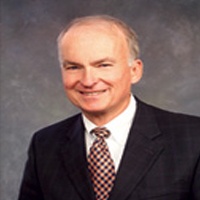Decatur White Collar Crime Lawyers, Illinois
Sponsored Law Firm
-
 x
x

Click For More Info:
-
LaPapa Law Group
10704 S Western Ave Chicago, IL 60643» view mapAccident & Injury Law, Criminal Defense Changing Lives One Case At A Time
At LaPapa Law Group, we understand that life doesn’t always go as planned. We have the knowledge and experience needed to competently represent you in court.
800-694-2681
Not enough matches for Decatur White Collar Crime lawyer.
Below are all Decatur Criminal lawyers.
Sponsored Lawyers
1-10 of 15 matches
DUI-DWI, Traffic, Estate, Power of Attorney, Consumer Rights
A native of Decatur, Illinois. Mr. Rowden graduated from University of Illinois in 1969 and received his Law Degree from University of Iowa in 1972. He is licensed to practice law in the States of Illinois, Iowa, and in United States Federal Courts. Mr. Rowden served as an Assistant State's Attorney in Sangamon County, Springfield, Illinois, from 1972 - 1974. He has been in continuous private practice of law with McCarthy, Rowden & Baker and its predecessors since 1974. He is a member of Breakfast Sertoma and serves on the Decatur Salvation Army Advisory Board. He is a member of the Decatur Bar Association, Illinois State Bar Association, and Illinois Trial Lawyers Association and serves on the Illinois State Bar Association Committee on Civil Practice and Procedure. He represents clients in Trial and Appellate Courts and before the Illinois Industrial Commission. Mr. Rowden's practice is concentrated in Adoption, Estate Planning/Wills, Family Law, Personal Injury, Probate, Real Estate, and Worker's Compensation.
(more)


 Gregory R. LaPapa Chicago, IL
Gregory R. LaPapa Chicago, IL Practice AreasExpertise
Practice AreasExpertise

